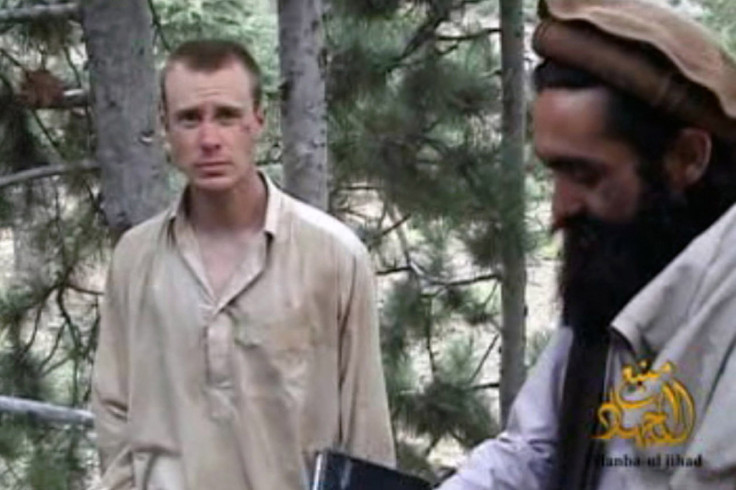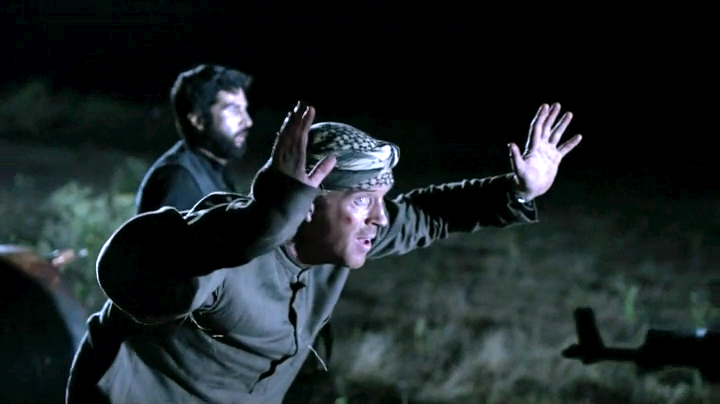The Bowe Bergdahl Story: When Homeland Met Apocalypse Now

When President Obama announced the release, after five long years, of America's only prisoner of war in Afghanistan, he must have imagined the credits rolling and the music swelling (perhaps Hans Zimmer's Leave No Man Behind from Black Hawk Down) over a happy Hollywood ending. Saving Private Ryan, Lone Survivor, Argo, even Forrest Gump – these are just a few of the movies that have seared into our consciousness the idea that no sacrifice is too great in order to rescue a fallen comrade.
It even fuels the plot of two Star Trek movies. "Logic dictates that the needs of the many outweigh the needs of the few... or the one," says Spock, when he sacrifices himself in The Wrath of Khan. But The Search for Spock turns this on its head, when Kirk explains the noble human instinct that caused him to risk his ship and all its crew for his second in command: "The needs of the one outweigh the needs of the many."
"We maintain an ironclad commitment to bring our prisoners of war home," President Barack Obama declaimed on Saturday. "That's who we are as Americans."
But the symbolism of movies, which as the dominant American art form is the narrative that inevitably colours our view of political events, is not as simple as Obama might wish. Sacrifices were indeed made to secure the return of POW Bowe Bergdahl. Six soldiers lost their lives searching for him. Five Taliban militants were freed from Guantanamo Bay in a prisoner exchange. But not everyone agrees that the needs of this particular soldier outweighed the needs of the many.
For a start, Bergdahl's capture was, according to an exhaustively researched article in Rolling Stone magazine, less Black Hawk Down and more The Thin Red Lineor Apocalypse Now. Disillusioned with army politics and the behaviour of his fellow soldiers, Bergdahl is said simply to have walked off his base. Deserted, in other words. "I was pissed off then and I am even more so now," a former member of Bergdahl's platoon told CNN recently. "Bowe Bergdahl deserted during a time of war and his fellow Americans lost their lives searching for him."

And now that he has been released, a more sinister narrative is taking hold. Michael Smerconish (@Smerconish), the newspaper columnist, radio personality and CNN talk show host, Tweeted yesterday: "Re: @Bergdahl – am I the only one thinking #Brody and #Homeland?"
Smerconish is referring, of course, to the television series in which Damian Lewis plays Nicholas Brody, a POW whom CIA officer Carrie Mathison (Claire Danes) believes may have been "turned" by the enemy. Or, to go further back in screen history, 1962's The Manchurian Candidate, in which a rescued American POW is unmasked as a sleeper agent.
Bergdahl's sympathy with the Afghan people is evident. He surrounded himself in the barracks with books on philosophy and ethics, and learned to speak Pashto. "These people need help," he wrote in his final email, "yet what they get is the most conceited country in the world telling them that they are nothing and that they are stupid, that they have no idea how to live." In a video released in 2010 in which he pleads for release, he expresses sorrow for Afghan lives lost as well as those of Americans, and says Guantanamo Bay prisoners must also long to be freed.
For some, this proves he is a traitor and a turncoat as well as a deserter; but then again you could equally cast Bergdahl as the hero of a movie such as The Great Escape, The Deer Hunter or Rescue Dawn. For in 2011, having lulled his captors into a false sense of security, Bergdahl took advantage of looser restrictions to escape. He hid for three days in a trench, and though weakened by lack of food and water, he put up such a struggle when discovered that it took five men to subdue him.
In the end, perhaps there is only one movie narrative that properly fits Bergdahl's situation: Catch-22. This states that the only to get out of fighting in a war is to show you're crazy. But, as the army psychiatrist says when rejecting every application... "Anyone who wants to get out of combat duty isn't really crazy."
© Copyright IBTimes 2024. All rights reserved.






